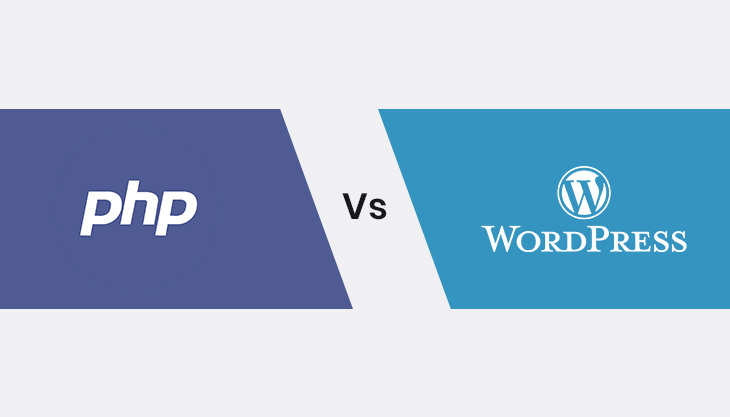PHP vs WordPress: Detailed Comparison
The debate between PHP and WordPress in web development circles is long-standing and multi-faceted. PHP, as a scripting language, offers raw power and flexibility for creating dynamic web applications. In contrast, WordPress, a CMS built on PHP, simplifies the process of website creation, making it accessible to a broader audience. This article aims to dissect these platforms, offering a nuanced understanding of their strengths, limitations, and best use cases. By comparing PHP and WordPress, developers and website creators can gain insights into which platform best suits their project’s requirements, skill level, and long-term digital strategy.
Understanding PHP
PHP, an acronym for Hypertext Preprocessor, stands for a server-side scripting language that revolutionized web development. It’s a cornerstone of many web applications and is known for its flexibility, compatibility with various databases, and capability to handle complex functionalities. PHP is a favorite among developers for its deep customization abilities, allowing for bespoke web solutions tailored to specific business needs. Whether it’s a social media platform, an e-commerce site, or a CRM system, PHP’s scalability and robustness make it an ideal choice for complex and data-intensive web applications.
Understanding WordPress
WordPress, originally a blogging platform, has evolved into a full-fledged content management system (CMS). It is built on PHP and MySQL, and it stands out for its user-friendly interface and vast ecosystem. With WordPress, users can create, edit, and manage websites without needing in-depth programming knowledge. It’s particularly popular among small to medium-sized businesses, bloggers, and e-commerce sites, thanks to its ease of use, extensive theme and plugin directory, and a supportive community. WordPress democratizes web development, allowing users to launch and manage professional-looking websites with minimal technical skills.
Core Functionalities and Use Cases
PHP is the backbone of many web applications, offering the freedom to create complex, customized web solutions from scratch. It shines in scenarios where unique functionality and specific database interactions are required. On the other hand, WordPress is designed for ease and efficiency in website creation and management. Its strengths lie in content management, blogging, and e-commerce, with a vast array of themes and plugins that extend its functionality. While WordPress suits less complex websites and users with limited coding skills, PHP is ideal for bespoke web development and larger, more intricate projects.
Performance and Efficiency
The performance of PHP-based websites hinges on the skill and expertise of the developer. It allows for optimized, efficient web solutions that can handle large volumes of data and high user traffic. WordPress, built on PHP, offers decent performance for most standard websites. However, its efficiency can be impacted by poorly coded themes or an excess of plugins. WordPress may require additional optimization, such as caching and image compression, for high-traffic websites, to maintain speed and responsiveness.
Flexibility and Customization
PHP provides unmatched flexibility in web development. Developers can tailor every aspect of a website or application, from user interface to database interactions. This level of customization is essential for creating feature-rich, complex websites. WordPress, while more constrained than raw PHP in terms of flexibility, still offers significant customization capabilities. Its extensive library of themes and plugins allows users to modify and enhance their websites without deep technical knowledge. However, for unique features not covered by existing plugins, knowledge of PHP is beneficial.
User Experience and Ease of Learning
PHP is a powerful tool in the hands of experienced developers, but it poses a steep learning curve for beginners. It requires a solid understanding of programming concepts and server-side scripting. Conversely, WordPress is designed with user experience in mind. Its intuitive dashboard and user-friendly design make website management and content creation accessible to a wide range of users, including those with minimal technical skills. The plethora of resources and tutorials available further eases the learning process for WordPress users.
Community Support and Resources
The PHP community is one of the largest and most active in web development. It offers a wealth of resources, including extensive documentation, forums, and a vast array of third-party tools. This support is invaluable for developers seeking to expand their PHP skills or troubleshoot issues. WordPress’s community, arguably larger than PHP’s, is a treasure trove of information, offering themes, plugins, tutorials, and forums. The collaborative nature of the WordPress community makes it an excellent resource for both beginners and experienced users looking for support or wishing to extend the functionality of their websites.
Security Measures
Security in PHP relies heavily on the developer’s ability to implement best practices and write secure code. While PHP itself is a secure platform, vulnerabilities can arise from poor coding practices. Regular updates and vigilance are required to maintain a secure PHP environment. WordPress, though it offers a secure core, faces security challenges, mainly due to its popularity. Regular updates to the core, themes, and plugins are crucial to protect WordPress sites from vulnerabilities. The platform also offers various security plugins to enhance protection.
SEO Potential
In PHP, the potential for search engine optimization (SEO) is entirely in the hands of the developer. Custom PHP sites can be optimized for search engines, but it requires manual effort and a thorough understanding of SEO principles. WordPress, renowned for its SEO-friendliness, provides users with an array of tools and plugins, such as Yoast SEO, to easily optimize their sites for search engines. These tools help in efficiently managing SEO aspects like meta tags, sitemaps, and keyword optimization.
Cost Analysis
Developing a website with PHP can vary in cost, depending on the complexity of the project and the developer’s skill level. Hosting and domain costs are typical, with additional expenses for development tools and resources. WordPress, as a free CMS, presents a cost-effective solution for website creation. However, expenses can arise from premium themes, plugins, and hosting services. For businesses and individuals seeking a budget-friendly web solution, WordPress often emerges as the more economical choice.
ASP.NET vs WordPress: A Comparative Insight
Expanding the comparison to include ASP.NET against WordPress provides a broader spectrum for decision-making in web development.
- ASP.NET: A Microsoft-developed framework, ASP.NET is used for building dynamic web applications and services. It is known for its high performance, robust security features, and scalability. ASP.NET is ideal for enterprise-level applications and websites that require complex functionalities and database integration;
- WordPress: As discussed, WordPress’s strengths lie in its ease of use, large community support, and extensive plugin and theme directory. It is particularly well-suited for small to medium-sized businesses, blogs, and e-commerce sites.
PHP vs WordPress: Detailed Comparison Table
| Feature | PHP | WordPress |
|---|---|---|
| Core Functionality | Scripting Language | Content Management System |
| Performance | High (Depends on Development) | Good (Varies with Themes/Plugins) |
| Flexibility | High | Moderate to High |
| Ease of Use | Low (For Developers) | High (User-Friendly) |
| Community Support | Extensive | Very Extensive |
| Security | Depends on Implementation | Good (With Regular Updates) |
| SEO | Depends on Development | High (With Plugins) |
| Cost | Variable (Development and Hosting) | Low to Moderate (Hosting and Extras) |
Conclusion
PHP and WordPress cater to different needs in the web development spectrum. PHP offers a flexible and powerful platform for custom web development, while WordPress provides an easy-to-use, efficient solution for content management.





